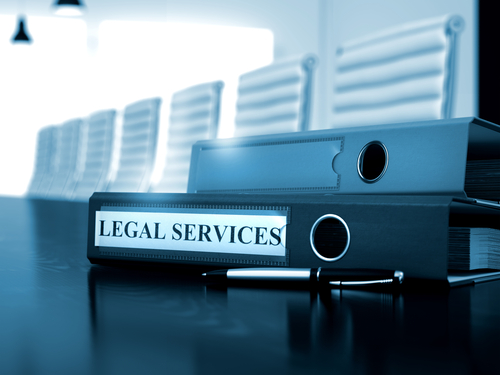Legal reform supporters will keep advocating for California sandbox proposal

Image from Shutterstock.com.
Advocates for legal regulatory reform say they are dismayed by the State Bar of California’s recent decision to postpone action on a proposed regulatory sandbox, but they have not given up the fight to convince the bar’s board of trustees to support further exploring the concept.
Though the board recently delayed a vote on sandbox-related recommendations until its May meeting, it did offer a glimmer of hope for reform backers by approving two proposals to amend legal ethics rules, including one pertaining to the prohibition on fee-sharing with nonlawyers.
While California is not alone among states in examining whether to overhaul how it regulates the legal industry, its efforts are being watched particularly closely due to the Golden State having the second-most attorneys in the country behind New York.
The California sandbox proposal was crafted by a state bar task force charged with identifying regulatory changes that could bolster access to justice. The Task Force on Access Through Innovation of Legal Services wrote in its final report that the sandbox would provide an avenue for reviewing potential changes to existing laws and rules “that otherwise inhibit the development of innovative legal services delivery systems.” (The task force was named as a 2020 Legal Rebel.)
Applications for participation would be sought from alternative legal services providers—as well as law firms—seeking to test new ways of providing legal services.
“Such an approach would provide data on any potential benefits to access to legal services and any possible consumer harm if prohibitions on unauthorized practice of law, fee sharing, nonlawyer ownership and other legal restrictions are modified or completely suspended for authorized sandbox participants,” the report says.
While the task force’s report notes Utah is moving forward with plans for a similar sandbox, the California panel’s recommendation to the state bar’s board was that it “form and appoint a new working group to explore the development of a regulatory sandbox.”
‘Political headwinds’
At the board’s March 12 meeting, bar trustee Ruben Duran made a motion to approve the recommendation, which was seconded by trustee José Cisneros. But bar board Chair Alan Steinbrecher and Vice Chair Sean SeLegue both advocated that the board delay action on the sandbox until the panel’s May meeting so the bar could consult with “stakeholders,” including the California Supreme Court.
“This is a very big controversial proposal, and if it is to be successful, we really need to consult with our stakeholders at the court and the legislature before moving it forward,” SeLegue said at the meeting.
“If the board were to approve it today, there could be political headwinds that may not be in the best interest of the success of the task force,” he added. “That is why we think we need to do some more work on it before the board goes down that road.”
Duran withdrew his motion, and the board voted without opposition to delay action until May.

Andrew Arruda.
Andrew Arruda, CEO and co-founder of ROSS Intelligence, criticized the board’s decision both on Twitter and in a subsequent blog post.
“The fact that the board of trustees felt that a two-month delay was necessary to pass a motion to explore the development of a regulatory sandbox, not even to create one, left me and many people upset,” he wrote on the Institute for the Advancement of the American Legal System’s blog.
“In my eyes, every day, hour, or minute of delay leads to bad legal outcomes for Californians,” Arruda wrote. “Our legal system is in crisis.”
Task force member Bridget Gramme says she too was disappointed that the board delayed action on the sandbox proposal, citing its potential to produce new ideas for broadening access to justice.
She says the bar’s board should prioritize its mission to protect the public over concerns raised by lawyers about the possible negative impacts of opening up the legal market.
“They have heard clear data from the California Justice Gap Study that there is a massive, massive justice gap that cannot be filled with the status quo,” says Gramme, administrative director of the Center for Public Interest Law at the University of San Diego School of Law. “The sandbox is a step toward real systemic change.”
The 2019 California Justice Gap Study that found approximately 85 percent of all Californians received either no legal help or inadequate legal help for the civil legal problems they experienced.
A call to act
In the aftermath of the bar’s March board meeting, Arruda has encouraged supporters of the sandbox to email bar trustees and request they vote in favor of the task force’s proposal. He and Rohan Pavuluri, CEO of Upsolve, even created a template regulatory reform advocates can use when writing California bar trustees.
“Let’s rally together and create some political headwinds,” Arruda wrote in his blog post, referencing SeLegue’s remarks.
California Assemblyman Mark Stone, chair of his chamber’s judiciary committee, says he supported the bar’s decision to delay action on the sandbox in order to gather more information from its oversight bodies.
Stone notes any changes to unauthorized practice of law statutes would need to be approved by the Legislature.
“I have been watching this bar discussion with great interest and waiting for them to realize they are definitely going to need legislative involvement in order to go very far down this line,” says Stone, a Democrat from Monterey Bay.
However, Stone emphasizes that he agrees more action is needed to address access to justice in the state. He says the state’s high cut score on the bar exam and lack of licensing reciprocity with other states are among the issues limiting the number of lawyers in California.
“California needs to look at all things possible in order to increase the capacity of the legal system,” Stone says.
Cathal Conneely, a spokesperson for the California Supreme Court, said the court had no comment at this time.
The bar’s board did approve two of the task force’s recommendations that public comment be sought on changes it proposed to two of the state’s Rules of Professional Conduct.
Rule 5.4 generally prohibits fee sharing with a nonlawyer, but one exception is fee-sharing arrangements with a nonprofit organization. The task force’s recommended revision would expand the exception to also cover fee-sharing with a nonprofit “in the case of an out-of-court settlement or other resolution that does not involve court action to award attorney fees.”
“If ultimately adopted by the [state bar] board and approved by the Supreme Court, this rule change would provide greater opportunities for legal services organizations to fund their programs through fee sharing arrangements with participating lawyers,” the task force wrote.
The task force also recommended as a longer-term objective that the bar study further revisions to rule 5.4, a process it says data from a regulatory sandbox could inform.
Meanwhile, the task force’s proposed new comment to rule 1.1 would state that a lawyer’s duty of competence encompasses a duty to “keep abreast of changes in the law and law practice, including the benefits and risks associated with relevant technology.”
If eventually adopted, the change would align California with a growing majority of states requiring that their lawyers maintain a duty of tech competence.
“While the comment to 1.1 might seem like a minor change, it is still an important one,” Gramme wrote in an email. “The more lawyers keep up-to-date on technology in their respective legal practices, the better equipped they will be to deliver more efficient and less expensive services to their clients.”
Additionally, the bar’s board approved the charter and the members of a Paraprofessional Program Working Group that has been tasked with “developing specific recommendations for a new category of legal paraprofessionals in California, such as limited license legal technicians or limited legal advocates.” The working group has been charged with presenting its proposals by July 2021, the state bar said in a press release.



